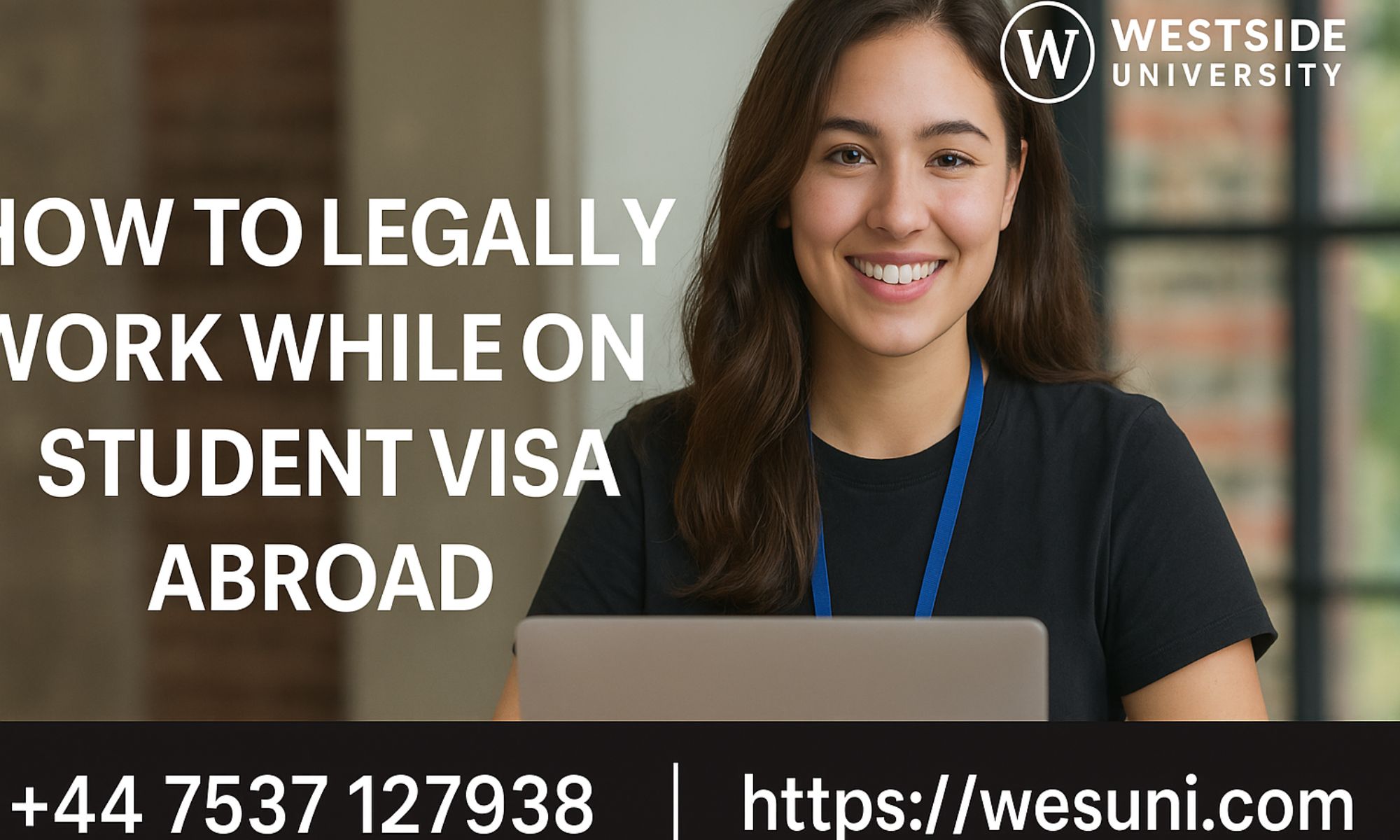Studying abroad is one of the most rewarding experiences a student can have. It gives you access to world-class education, exposure to diverse cultures, and the opportunity to build a global network. But for many international students, finances are a constant challenge. Tuition fees, accommodation, transportation, and living expenses can quickly add up.
That’s where part-time jobs and internships come in. Working while studying abroad can help you cover expenses, gain valuable experience, and boost your resume. However, it’s essential to understand the legal restrictions of your student visa. Working illegally can result in fines, visa cancellation, or even deportation.
This guide explains how to legally work while on a student visa abroad, including country-specific rules, popular job options, and tips for balancing work and academics.
🌍 Why Work as an International Student?
There are several benefits to working while studying abroad:
- Financial relief: Extra income can cover food, rent, or travel expenses.
- Work experience: Gain skills that improve employability after graduation.
- Cultural exposure: Jobs help you interact with locals and adapt faster.
- Networking opportunities: Build relationships that can help your career.
📜 Understanding Student Visa Work Regulations
Every country has its own set of visa rules regarding work. Here’s a breakdown of some of the most popular study-abroad destinations:
🇺🇸 United States
- Work limit: Up to 20 hours per week during academic terms.
- Allowed jobs: Only on-campus jobs for F-1 visa holders. Off-campus work requires authorization (CPT or OPT).
- Example: Research assistant, library clerk, or cafeteria worker.
🇬🇧 United Kingdom
- Work limit: Up to 20 hours per week during term-time, and full-time during holidays.
- Allowed jobs: Most part-time jobs except professional sports or full-time permanent roles.
- Example: Retail, hospitality, or campus administrative jobs.
🇨🇦 Canada
- Work limit: Up to 20 hours per week during semesters, and full-time during breaks.
- Allowed jobs: On-campus and off-campus work without a separate permit (if enrolled full-time at a Designated Learning Institution).
- Example: Tutor, barista, customer service.
🇦🇺 Australia
- Work limit: Up to 48 hours every two weeks during study sessions, full-time during holidays.
- Allowed jobs: Any part-time or casual work except certain government roles.
- Example: Waiter, retail assistant, teaching aide.
🇩🇪 Germany
- Work limit: 120 full days or 240 half days per year.
- Allowed jobs: Most part-time roles except self-employment.
- Example: Internship, call center agent, research assistant.
🇳🇿 New Zealand
- Work limit: Up to 20 hours per week during term, and full-time during vacations.
- Allowed jobs: Most part-time or casual jobs.
- Example: Hospitality, agriculture, seasonal work.
🛠️ Common Job Options for International Students
Here are some of the most popular and accessible part-time jobs abroad:
- On-campus jobs: Library, administrative offices, campus tours, lab assistant.
- Retail and hospitality: Cafes, restaurants, shops, supermarkets.
- Tutoring: Language or academic tutoring for other students.
- Internships: Some programs allow paid or unpaid internships related to your field.
- Freelancing (if permitted): Writing, design, or online tutoring. (⚠️ Always check if freelance work is legal under your visa).
📌 Steps to Legally Work Abroad on a Student Visa
- Check visa conditions: Read your visa documents carefully.
- Register with authorities (if required): Some countries (like Germany) require you to inform immigration offices before starting work.
- Apply for a work permit if needed: In the U.S., CPT/OPT authorization is required for off-campus work.
- Get a local tax number: For example, National Insurance Number (UK), SIN (Canada), or TFN (Australia).
- Keep within legal work hours: Never exceed the allowed weekly hours.
- Balance work and academics: Remember your primary purpose abroad is education.
⚠️ Risks of Working Illegally
Working without permission may seem tempting but comes with serious risks:
- Visa cancellation or refusal for future applications.
- Deportation or ban from re-entry.
- Financial penalties.
- Loss of academic status.
Always stay within the law to protect your student journey.
🧑🎓 Balancing Work and Studies
Juggling work and classes can be tough, but it’s doable with proper planning:
- Limit work hours to avoid burnout.
- Choose flexible jobs (like weekend or evening shifts).
- Use digital planners or apps to manage schedules.
- Don’t let work interfere with exams or deadlines.
🌟 Tips for Landing a Student Job Abroad
- Use your university’s career center—many institutions post job listings.
- Network with classmates who already work.
- Leverage job portals specific to students (like Indeed, Glassdoor, or local classifieds).
- Highlight language skills—being bilingual can set you apart.
- Keep a student-friendly CV—emphasize transferable skills, even from volunteer roles.
🎓 Final Thoughts
Working abroad as an international student can be a life-changing experience. It helps you grow financially, academically, and personally while preparing you for a global career. But the key is to stay within the legal framework of your student visa.
Remember: education is your top priority, but the right part-time job can add value to your study abroad journey.
🚀 Call to Action
At Westside University (WesUni), we help students navigate admissions, scholarships, visas, accommodation, and even part-time job guidance while studying abroad.
👉 Ready to kickstart your journey? Apply now at https://wesuni.com/apply or call us at +44 7537 127938.
✅ By knowing the rules and making smart choices, you can work legally, gain experience, and thrive abroad without risking your future.


